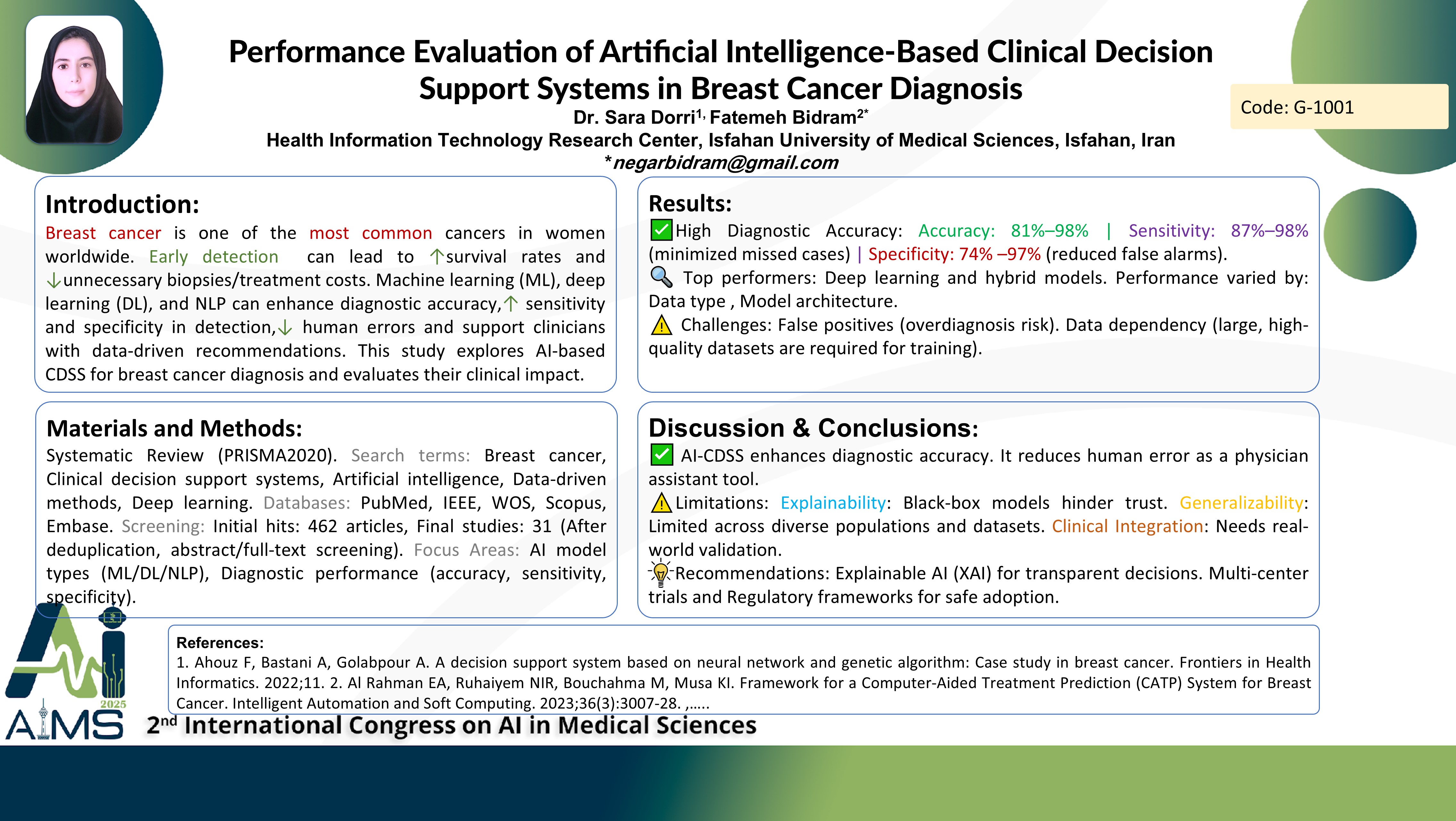Performance Evaluation of Artificial Intelligence-Based Clinical Decision Support Systems in Breast Cancer Diagnosis
Code: G-1612
Authors: Dr. Sara Dorri, Fatemeh Bidram * ℗
Schedule: Not Scheduled!
Tag: Clinical Decision Support System
Download: Download Poster
Abstract:
Abstract
Background and aims: Breast cancer is one of the most common cancers among women. Early diagnosis can significantly improve patient survival rates, reduce unnecessary and costly biopsies and interventions. With advancements in artificial intelligence technologies, Clinical Decision Support Systems based on machine learning, deep learning and natural language processing have been developed as assistive tools to enhance accuracy, sensitivity, specificity in diagnosis, reduce human errors, and provide appropriate recommendations during decision-making. This study aimed to evaluate the performance of Artificial Intelligence-Based Clinical Decision Support Systems in breast cancer diagnosis. The key performance metrics discussed in this study include accuracy, sensitivity, and specificity of these systems. Method: A systematic review was conducted using keywords such as clinical decision support systems, artificial intelligence, breast cancer diagnosis, and their synonyms in five databases: PubMed, IEEE, Web of Science, Scopus, and Embase. A total of 462 articles were retrieved and screened, resulting in a final selection of 31 studies. Results: The findings of this study indicate that Artificial Intelligence-Based Clinical Decision Support Systems have demonstrated significant performance in breast cancer diagnosis. The performance of different models varies depending on data type, machine learning methods, and system architecture. Some systems have achieved accuracy ranging from 81% to 98%, sensitivity between 87% to 98%, and specificity between 74% to 97%. Deep learning and hybrid models, in particular, have shown high accuracy in predicting the malignancy of breast lesions. However, false-positive rates and the need for large datasets to train models remain key challenges in this technology. Conclusion: Overall, Artificial Intelligence-Based Clinical Decision Support Systems hold great potential in improving the breast cancer diagnosis process and can serve as valuable assistive tools alongside physician decision-making. However, for wider adoption in clinical settings, further evaluations, improved model explainability, and enhanced generalizability across diverse datasets are required.
Keywords
Breast-cancer, Clinical-decision-support-systems, Artificial-intelligence, Data-driven-methods, Deep-learning
